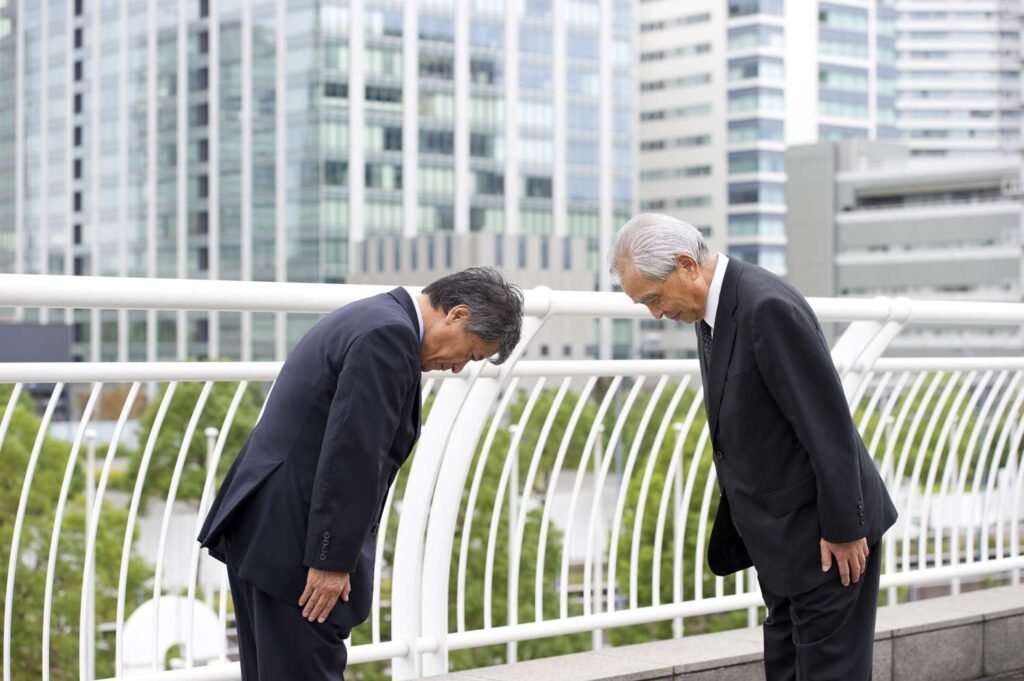By Fathima Rukaiya,
Japan continues to captivate travelers with its rich culture, serene temples, and extraordinary hospitality. But beyond the stunning landscapes and Michelin-star meals, Japan is also a country with deeply rooted traditions and etiquette. The importance of understanding and respecting local customs is more emphasized than ever, especially with the rise of tourism and cultural preservation movements.
1.Respect Personal Space and Keep Noise to a Minimum

After the pandemic Personal cleanliness and personal space are still highly valued in Japan. Social etiquette around noise and crowd behavior is even more observed today.
What You Should Do:
Speak quietly in public, especially when riding the Shinkansen or metro trains.
Texting or messaging is preferable for communicating on the phone in busy places or on trains.
Be mindful of queues. Japan is known for its well-organized lines. Always wait patiently for your turn, whether you’re in a line at a convenience shop, train station, or even a vending machine.
2. Shoes Off Indoors, Always!

The Tradition:
Shoes are considered dirty and are not worn inside homes, traditional inns (ryokan), temples, and sometimes in certain restaurants or fitting rooms. The use of floor indications and digital signage has increased, frequently in Japanese, Mandarin, English, and Korean. Subtle clues are still used in many smaller locations, though.
What You Must Do:
You should take off your shoes when you see a genkan (entryway) and a rack of slippers.
Always wear socks, or carry some in your purse, particularly when you’re going to shrines or other traditional locations.
Avoid wearing restroom slippers back into the main area when slippers are provided. This is a classic tourist mistake.
3. Master the Art of Polite Communication

Although technology has made it easier for more travelers to interact through translation apps, politeness still takes priority over fluency. Even simple greetings in Japanese are highly valued.
Important Words to Know:
“Arigatou gozaimasu” (Thank you very much)
“Sumimasen” (Excuse me / I’m sorry)
“Onegaishimasu” (Please / I humbly request)
Advice:
A small bow is a respectful way to welcome or express gratitude. You don’t have to go far, just nod.
During talks, avoid making excessive physical gestures like touching or hugging.
4. Cash is Still King

In 2025, cash will still be the preferred method of payment in rural areas and for small companies, even though contactless methods like Suica, Pasmo, and even cryptocurrency-based travel cards will be increasingly widely accepted in cities.
Tips:
When exchanging business cards or cash, use both hands to demonstrate respect.
Always put cash in the provided tray at checkouts instead of giving it to the cashier.
Japanese clerks are known for their accuracy, so avoid counting change at the counter.
5. Onsen (Hot Spring) Etiquette

With international tourism rising again, more onsen facilities now offer multilingual instructions. Some even offer tourist-only private rental baths or areas that are tattoo-friendly
Onsen Rules to Follow:
Before using the communal bath, take a good shower. Rinse, wash, and thoroughly clean your body.
You enter the bath naked and don’t wear swimwear (separate baths for men and women).
Keep your little towel at the edge or on your head; do not place it in the water.
Refrain from splashing and keep hair out of the water.
Remain silent and honor the area’s serenity.
As Japan navigates the balance between tradition and modernity in 2025, being a respectful traveler matters more than ever. Etiquette in Japan isn’t just about rules, it’s about showing appreciation for a culture that values harmony, respect, and mindfulness.
Before your next trip to Japan, take a little time to learn, adapt, and immerse yourself in the unspoken beauty of Japanese manners. You’ll not only be welcomed more warmly, you’ll walk away with a far deeper connection to the culture.





